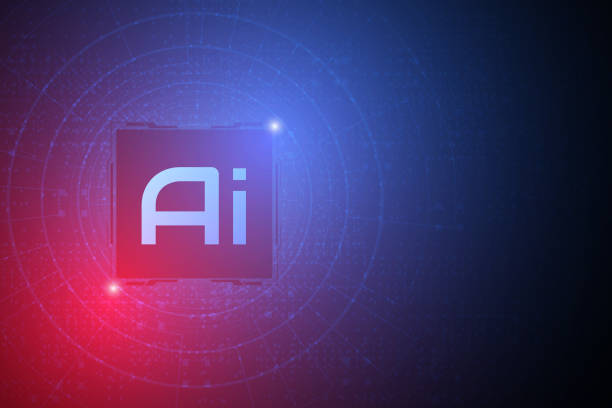What is Artificial Intelligence and How Does it Revolutionize the World of Work?
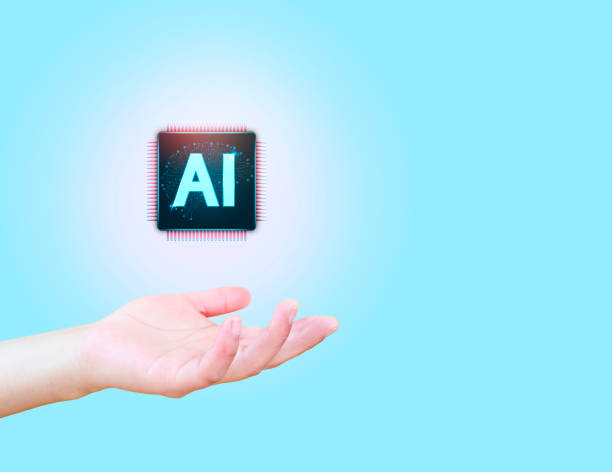
#ArtificialIntelligence (AI) is rapidly changing the #JobLandscape.
With ever-advancing developments in algorithms and processing power, AI is capable of performing tasks that were previously only possible for humans.
This transformation creates new opportunities and challenges for the workforce.
But how exactly do these changes revolutionize the world of work?
AI impacts through process automation, increased productivity, and the creation of new jobs.
Automation delegates repetitive and routine tasks to machines, allowing humans to focus on more complex and creative tasks.
This leads to increased productivity and reduced costs for organizations.
Simultaneously, AI paves the way for new jobs in fields such as #MachineLearning development, data analysis, and AI engineering.
However, this transformation also comes with challenges.
Some jobs are at risk of #Automation, and reskilling and upskilling the workforce is inevitable.
Furthermore, ethical and social issues related to artificial intelligence, such as algorithmic bias and the erosion of privacy, require careful attention and consideration.
Consequently, a precise understanding of what artificial intelligence is and its impacts on the world of work is essential for individuals, organizations, and policymakers to leverage opportunities and mitigate challenges.
Wikipedia – Artificial Intelligence
Also, the future of AI careers is influenced by these very changes.
Organizations must have appropriate strategies to manage these changes and help their employees acquire the necessary skills to succeed in the future world of work.
Are you concerned about your e-commerce site’s low conversion rate and not achieving your desired sales?
Rasawweb is your specialized solution for a successful e-commerce site.
✅ Significant increase in conversion rates and sales
✅ Professional and user-friendly design to attract customer satisfaction
⚡ Ready for a transformation in online sales? Get a free consultation!
Which jobs are at risk of automation
![]()
Automation, enabled by artificial intelligence and related technologies, is increasingly impacting the labor market.
Understanding which jobs are most at risk of automation is essential for career planning and skill development.
Jobs involving repetitive, routine, and standardizable tasks are more vulnerable to automation than others.
For example, clerical and administrative jobs, telephone operators, data entry clerks, and heavy vehicle drivers are among those with a high probability of automation.
These jobs typically involve tasks that can be easily performed by algorithms and robots.
Additionally, jobs requiring simple physical skills, such as assembling parts in factories, are also at risk.
However, automation does not necessarily mean the complete elimination of these jobs.
In many cases, automation can lead to a change in the nature of work, allowing humans to focus on more complex and creative tasks.
For instance, an accountant might focus on analyzing financial data and providing advice to clients, rather than performing manual calculations.
Therefore, the future of AI careers depends on this automation.
Oxford Martin School – Technology at Work v2
To mitigate the negative effects of automation, individuals must keep their skills updated and acquire new skills that will be needed in the future world of work.
These skills include technical skills such as programming and data analysis, and soft skills such as critical thinking, problem-solving, and creativity.
New jobs created by artificial intelligence
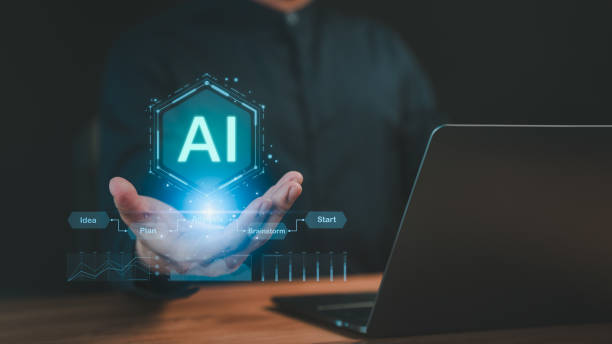
While automation threatens some jobs, artificial intelligence simultaneously creates new job opportunities.
These new jobs are often in areas requiring specialized skills in AI, machine learning, and data analysis.
For example, AI developers, machine learning engineers, data scientists, cybersecurity specialists, and AI ethics specialists are among the growing professions in this field.
AI developers are responsible for designing, developing, and implementing AI systems.
They must have deep knowledge of AI algorithms, programming languages, and software development tools.
Machine learning engineers focus on improving and optimizing machine learning algorithms.
They must have strong knowledge of mathematics, statistics, and computer science.
Data scientists are responsible for collecting, analyzing, and interpreting data.
They must possess strong analytical skills and the ability to use data analysis tools.
Furthermore, the future of AI careers is also expanding into other areas.
For instance, with the increasing use of AI systems, the need for cybersecurity specialists to protect these systems from cyberattacks increases.
Also, given the ethical issues associated with AI, there is a need for AI ethics specialists to ensure the responsible and ethical use of this technology.
Simplilearn – Artificial Intelligence Jobs
Consequently, to benefit from the new job opportunities created by artificial intelligence, individuals must acquire the necessary skills and adapt to the changing needs of the job market.
| Job Title | Brief Description |
|---|---|
| AI Developer | Designing and developing artificial intelligence systems |
| Machine Learning Engineer | Improving and optimizing machine learning algorithms |
| Data Scientist | Collecting, analyzing, and interpreting data |
| Cybersecurity Specialist | Protecting AI systems from cyberattacks |
Skills required for success in the age of artificial intelligence
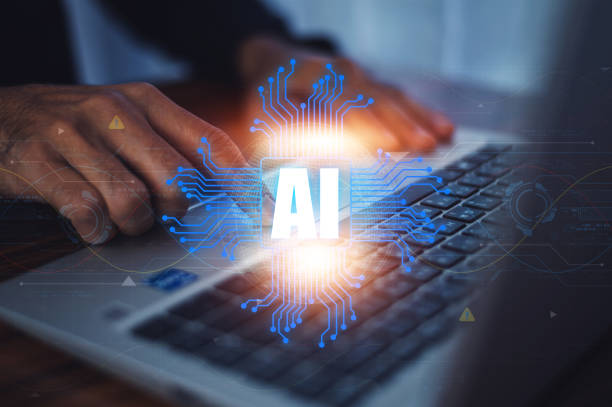
Success in the age of artificial intelligence requires a combination of technical and soft skills.
Technical skills include knowledge and mastery of AI-related technologies, such as programming, machine learning, data analysis, and cybersecurity.
Soft skills include abilities such as critical thinking, problem-solving, creativity, communication, and collaboration.
Critical thinking means the ability to analyze information, evaluate arguments, and make logical decisions.
Problem-solving means the ability to identify and solve complex problems using creative and effective methods.
Creativity means the ability to generate new and innovative ideas.
Communication means the ability to communicate effectively with others, present ideas clearly and concisely, and listen actively to others.
Collaboration means the ability to work effectively and constructively with others to achieve common goals.
Furthermore, the future of AI careers requires continuous learning and adaptation to change.
AI technology is advancing rapidly, and individuals must constantly update their knowledge and skills to keep pace with these changes.
Additionally, individuals must be flexible and capable of learning new skills.
World Economic Forum – The 10 skills you need to thrive in the Fourth Industrial Revolution
To acquire these skills, individuals can attend training courses, learn online, or develop their skills through work experience.
Also, it is important for individuals to build a network of professional contacts and connect with experts in the field of AI.
Does your current corporate website not generate the expected sales for you?
Rasawweb is a specialist in professional e-commerce website design!
✅ An attractive and user-friendly site aimed at increasing sales
✅ High speed and security for an ideal shopping experience⚡ Get a free consultation for online store design with Rasawweb!
The role of education in preparing the workforce for the age of artificial intelligence
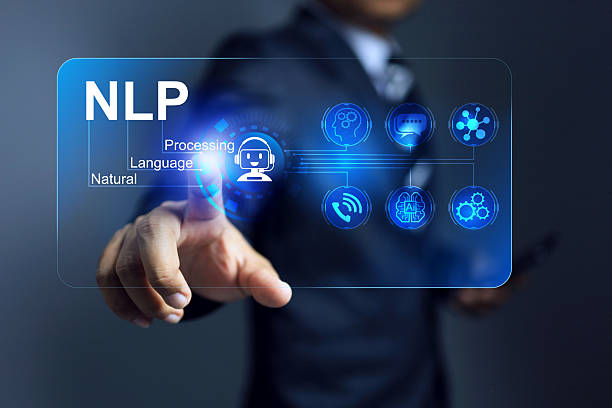
The education system plays a vital role in preparing the workforce for the age of artificial intelligence.
Educational systems must update their curricula and teach students the skills needed for success in the future world of work.
These skills include technical skills such as programming and data analysis, and soft skills such as critical thinking, problem-solving, and creativity.
Furthermore, educational systems must teach students how to use AI effectively and responsibly.
They must have a deep understanding of AI ethical principles and be able to apply these principles in their decision-making.
Also, educational systems must provide opportunities for students to gain practical experience with AI technologies.
These opportunities can include hands-on projects, internships, and visits to companies active in the field of AI.
In addition to formal education, informal education also plays an important role in preparing the workforce for the age of artificial intelligence.
Online courses, workshops, and conferences can help individuals acquire new skills and update their knowledge.
Also, social networks and professional forums can provide opportunities for individuals to connect with AI experts and learn from their experiences.
In this regard, the future of AI careers has a strong dependence on education.
Brookings – Preparing workers for the future
Consequently, preparing the workforce for the age of artificial intelligence requires a comprehensive and integrated approach that includes formal and informal education, collaboration between industry and academia, and investment in the development of AI technologies.
How to improve your skills for an AI career future
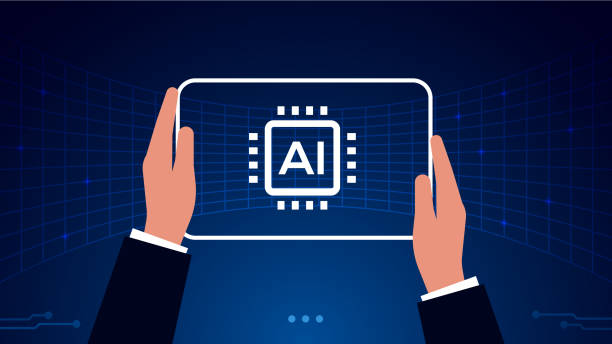
Upskilling for a future career in the age of artificial intelligence is essential.
Given the rapid changes in technology and the job market, individuals must constantly update their skills and acquire new ones.
This can be achieved through various methods, including participating in training courses, online learning, attending workshops and conferences, and gaining work experience.
Participating in training courses can help individuals enhance their knowledge and skills in specific areas such as programming, machine learning, data analysis, and cybersecurity.
Online learning is a flexible and cost-effective way to acquire new skills.
Numerous websites and educational platforms offer online courses in AI and related technologies.
Attending workshops and conferences can help individuals stay abreast of the latest advancements in AI and connect with experts in the field.
Gaining work experience can help individuals apply their skills in practice and gain practical experience in AI.
Furthermore, it is important for individuals to also focus on developing their soft skills.
Soft skills such as critical thinking, problem-solving, creativity, communication, and collaboration are becoming increasingly important in the age of artificial intelligence.
To develop these skills, individuals can participate in group activities, seek opportunities to solve complex problems, and strive to generate new and innovative ideas.
The future of AI careers is bright if individuals seek to upgrade their skills.
Coursera is a good platform for skill upgrading.
Finally, it is important for individuals to have a positive attitude towards learning and change.
The world of work is rapidly changing, and individuals must be prepared to continuously update their skills and keep pace with the changes.
The role of government in supporting the workforce in the age of artificial intelligence
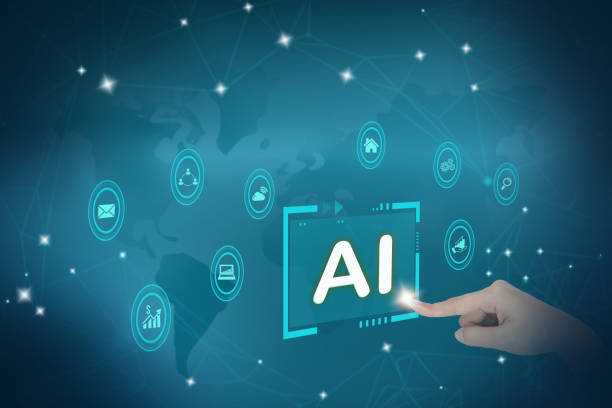
The government plays an important role in supporting the workforce in the age of artificial intelligence.
The government can help the workforce adapt to changes brought by AI by investing in education, supporting innovation, and creating social safety nets.
Investment in education includes developing new educational programs that teach students the skills needed for success in the future world of work.
Support for innovation includes providing tax incentives and other support to companies operating in AI and related technologies.
Creating social safety nets includes providing financial and other support to individuals who have lost their jobs due to automation.
Furthermore, the government can protect workers’ rights in the age of artificial intelligence by enacting appropriate regulations and policies.
These regulations and policies can include setting minimum wages, providing unemployment benefits, and prohibiting discrimination in employment.
The government can also help the workforce adapt to changes brought by AI by encouraging companies to invest in employee training and skill development.
Regarding the future of AI careers, the role of government is undeniable.
OECD – The Future of Work
Ultimately, it is important for the government, in collaboration with other stakeholders such as companies, universities, and non-governmental organizations, to develop a comprehensive strategy to support the workforce in the age of artificial intelligence.
This strategy should include clear objectives, measurable actions, and defined responsibilities for each stakeholder.
| Government Role | Description |
|---|---|
| Investment in Education | Development of new educational programs |
| Support for Innovation | Providing tax incentives to companies |
| Creation of Social Safety Nets | Providing financial support to unemployed individuals |
| Regulation and Policies | Protecting workers’ rights |
Ethical and social issues related to artificial intelligence and employment
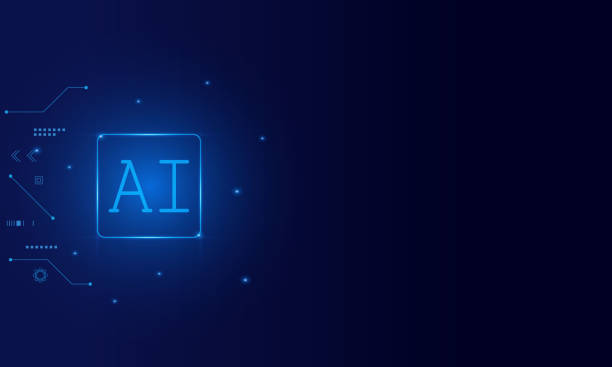
Artificial intelligence, in addition to its many benefits, also raises important ethical and social issues that need to be addressed.
These issues include algorithmic bias, loss of privacy, and increased economic inequality.
Algorithmic bias means that AI algorithms can make discriminatory decisions, for example, based on individuals’ race, gender, or ethnicity.
Loss of privacy means that AI systems can collect, store, and use individuals’ personal information without their knowledge or consent.
Increased economic inequality means that AI can lead to a widening gap between the rich and the poor, as automation can eliminate many jobs and lead to increased unemployment.
To address these ethical and social issues, a multifaceted approach is needed, including appropriate regulations and policies, the development of ethical standards, and increased public awareness.
Appropriate regulations and policies can help prevent algorithmic bias, protect individuals’ privacy, and reduce economic inequality.
The development of ethical standards can help companies use AI responsibly and ethically.
Increasing public awareness can help individuals understand their rights and use AI informedly.
The future of AI careers requires attention to these issues.
Electronic Frontier Foundation is a reputable organization in the field of digital rights.
Furthermore, it is important for individuals to discuss and exchange views on the ethical and social issues related to artificial intelligence.
This discussion and exchange of views can help identify new issues and find appropriate solutions for them.
Does your company website create a professional and lasting first impression on potential customers? Rasawweb, with its professional corporate website design, not only represents your brand’s credibility but also opens a path for your business growth.
✅ Create a powerful and trustworthy brand image
✅ Attract target customers and increase sales
⚡ Get a free consultation
The impact of artificial intelligence on various industries

Artificial intelligence is currently having a significant impact on various industries, and this impact is expected to increase in the future.
In the healthcare industry, AI can help diagnose diseases, develop new treatments, and improve patient care.
In the financial industry, AI can help identify fraud, manage risk, and provide personalized financial services.
In the transportation industry, AI can help develop self-driving cars, improve traffic management, and reduce accidents.
In the manufacturing industry, AI can help automate processes, improve product quality, and reduce costs.
These are just a few examples of the impacts of artificial intelligence on various industries.
With continuous advancements in AI technology, it is expected that this technology will be used in more industries and have deeper impacts on the economy and society.
Also, the future of AI careers is different in each industry.
McKinsey – How artificial intelligence can deliver more value across industries
Consequently, to succeed in the future world of work, individuals must become familiar with the impacts of AI on their industry and acquire the necessary skills to use this technology.
The future of AI careers: opportunities and challenges

The future of AI careers brings both opportunities and challenges.
On the one hand, AI can create new job opportunities, increase productivity, and improve the quality of life.
On the other hand, AI can lead to the loss of some jobs, increase economic inequality, and raise significant ethical and social issues.
To benefit from AI’s opportunities and mitigate its challenges, a comprehensive and integrated approach is needed that includes education, innovation, regulation and policies, and collaboration among government, companies, universities, and non-governmental organizations.
Given the rapid changes in AI technology, it is important for individuals to continuously update their skills and acquire new ones.
Also, it is important for individuals to focus on developing their soft skills as well.
The government must help the workforce adapt to changes brought by AI by investing in education, supporting innovation, and creating social safety nets.
Companies must help their employees adapt to new technologies by investing in training and skill development.
Universities must teach students the skills needed for success in the future world of work by developing new educational programs.
Non-governmental organizations must help individuals understand their rights and use this technology informedly by increasing public awareness about AI.
The future of AI careers has many opportunities.
Through cooperation and joint efforts, we can benefit from the future of AI careers and create a fairer and more prosperous society.
Frequently Asked Questions
| Question | Answer |
|---|---|
| What impact will AI have on the future job market? | AI will automate repetitive jobs, but it will also create new, more complex jobs in areas such as developing, maintaining, and training AI systems. |
| Which jobs are most at risk of being replaced by AI? | Jobs involving repetitive, rule-based tasks with low requirements for creativity or emotional intelligence, such as some manufacturing jobs, data entry, and simple customer service, are most at risk. |
| What skills are essential for success in an AI-powered career future? | Skills such as critical thinking, complex problem-solving, creativity, emotional intelligence, data literacy, the ability to work with AI, and lifelong learning are of paramount importance. |
| Will AI cause widespread unemployment? | Some jobs will be lost, but history shows that new technologies, rather than causing widespread unemployment, reshape the labor market and create new jobs. Adaptability and retraining are crucial. |
| What new job opportunities emerge with the rise of AI? | Jobs such as Machine Learning Engineer, Data Scientist, AI Ethicist, Human-AI Interaction Designer, and Digital Transformation Consultant are among the new opportunities. |
| What is the role of education in preparing for an AI-powered career future? | Education must focus on developing soft skills, computational thinking, digital literacy, and the ability for continuous learning to prepare individuals for future changes. |
| How can I prepare myself for job market changes caused by AI? | You can prepare yourself by learning new AI- and data-related skills, strengthening soft skills, developing critical and creative thinking, and embracing lifelong learning. |
| Will AI ethics become an important career field? | Yes, given increasing concerns about biases, privacy, and automated decision-making in AI, the role of AI ethics specialists will become crucial for ensuring its responsible development. |
| What is the importance of human-AI collaboration in the future of work? | Human-AI collaboration, rather than competition, will shape the future of the job market. AI can be a tool to increase productivity and allow humans to focus on more complex and creative tasks. |
| Which industries will be most affected by AI? | Virtually all industries will be affected, but sectors such as healthcare, finance, transportation, manufacturing, education, and customer service are pioneers in AI adoption and transformation. |
And other services of Rasawweb Advertising Agency in the field of advertising
Smart Advertorials: An effective tool for increasing click-through rates with intelligent data analysis.
Smart Digital Advertising: A combination of creativity and technology for user engagement through marketing automation.
Smart Customer Journey Map: A professional solution for increasing website visits, focusing on SEO-driven content strategy.
Smart Direct Marketing: Revolutionize campaign management with attractive UI/UX design.
Smart UI/UX: A fast and efficient solution for analyzing customer behavior with a focus on Google Ads management.
And over hundreds of other services in internet advertising, advertising consultation, and organizational solutions
Internet Advertising | Advertising Strategy | Advertorials
Resources
The future of AI jobs in Digiato
Examining the AI job market in Zoomit
New job opportunities with AI in ITResan
The impact of AI on the future of jobs in Tabnak
? With Rasawweb Afarin, elevate your business to digital heights and establish a powerful online presence tailored to modern needs with our specialized services, including corporate website design. For more information on our comprehensive digital marketing solutions, visit the Rasawweb Afarin website.
📍 Tehran, Mirdamad Street, next to Central Bank, Southern Kazerun Alley, Ramin Alley No. 6

